
@alexlish.bsky.social
Ph.D. Student Harvard BBS | Young-Pearse Lab | iPSCs and Alzheimer’s Disease | Glia Biology and Neuroimmune interactions
Reposted
Best of luck today to @alexlish.bsky.social on her first day at Novartis! We will miss her greatly but look forward to seeing all of the fabulous things she accomplishes in her new scientific endeavors!



August 25, 2025 at 9:41 PM
Best of luck today to @alexlish.bsky.social on her first day at Novartis! We will miss her greatly but look forward to seeing all of the fabulous things she accomplishes in her new scientific endeavors!
Reposted
I’m a huge fan of the work done by @typlab.bsky.social - so it was great to have the opportunity to write a preview of their work describing an in vitro triculture model of Alzheimer’s (with @celarber.bsky.social & Tatiana). Check it out & go read their paper!
www.sciencedirect.com/science/arti...
www.sciencedirect.com/science/arti...
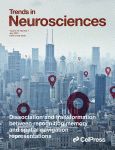
Reconstructing Alzheimer’s disease one cell type at a time using in vitro tricultures
In a recent study, Lish and colleagues used a fully human-based, induced pluripotent stem cell (iPSC)-derived triculture model of neurons, astrocytes,…
www.sciencedirect.com
July 29, 2025 at 3:00 PM
I’m a huge fan of the work done by @typlab.bsky.social - so it was great to have the opportunity to write a preview of their work describing an in vitro triculture model of Alzheimer’s (with @celarber.bsky.social & Tatiana). Check it out & go read their paper!
www.sciencedirect.com/science/arti...
www.sciencedirect.com/science/arti...
Reposted
Honored to have our work featured!Huge thanks for highlighting our triculture Alzheimer’s model!
I’m a huge fan of the work done by @typlab.bsky.social - so it was great to have the opportunity to write a preview of their work describing an in vitro triculture model of Alzheimer’s (with @celarber.bsky.social & Tatiana). Check it out & go read their paper!
www.sciencedirect.com/science/arti...
www.sciencedirect.com/science/arti...

Reconstructing Alzheimer’s disease one cell type at a time using in vitro tricultures
In a recent study, Lish and colleagues used a fully human-based, induced pluripotent stem cell (iPSC)-derived triculture model of neurons, astrocytes,…
www.sciencedirect.com
July 31, 2025 at 11:49 AM
Honored to have our work featured!Huge thanks for highlighting our triculture Alzheimer’s model!
Excited to share that our paper describing the establishment of our iPSC-derived triculture model is finally out in @cp-cellreports.bsky.social! Using this system, we show how the co-culture environment shapes cell responses, with a particular focus on microglia!
www.cell.com/cell-reports...
www.cell.com/cell-reports...
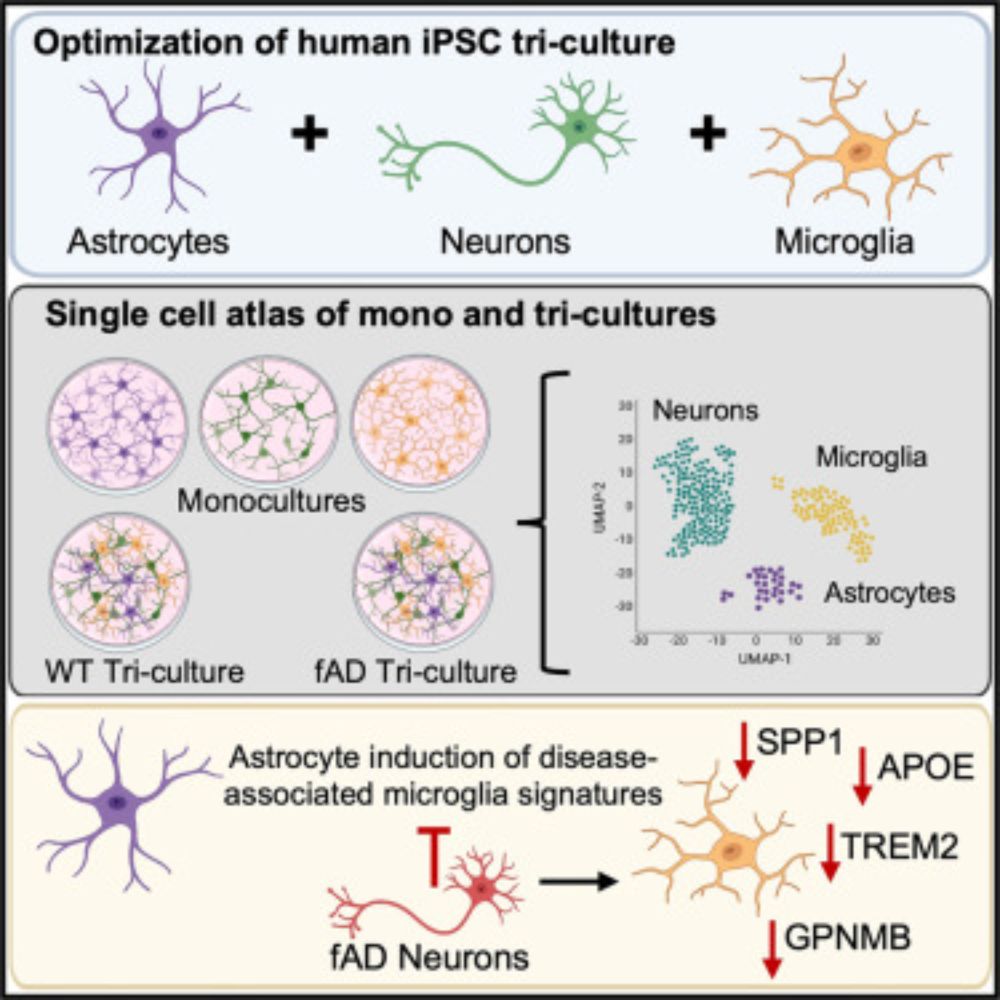
Astrocyte induction of disease-associated microglia is suppressed by acute exposure to fAD neurons in human iPSC triple cultures
Lish et al. present a co-culture system of iPSC-derived human microglia, astrocytes,
and neurons to investigate intercellular communication across different environmental
and genetic contexts. Transcr...
www.cell.com
June 4, 2025 at 8:03 PM
Excited to share that our paper describing the establishment of our iPSC-derived triculture model is finally out in @cp-cellreports.bsky.social! Using this system, we show how the co-culture environment shapes cell responses, with a particular focus on microglia!
www.cell.com/cell-reports...
www.cell.com/cell-reports...
Reposted
🎓Congratulations to our incredible grads! 🎉
Dr. Lish and outstanding undergrads Seohyun Kim & Ellie Grogan are officially Harvard alumni! 🥂
We’re so proud of all you’ve accomplished—and can’t wait to see what you do next! 💫 @alexlish.bsky.social
Dr. Lish and outstanding undergrads Seohyun Kim & Ellie Grogan are officially Harvard alumni! 🥂
We’re so proud of all you’ve accomplished—and can’t wait to see what you do next! 💫 @alexlish.bsky.social
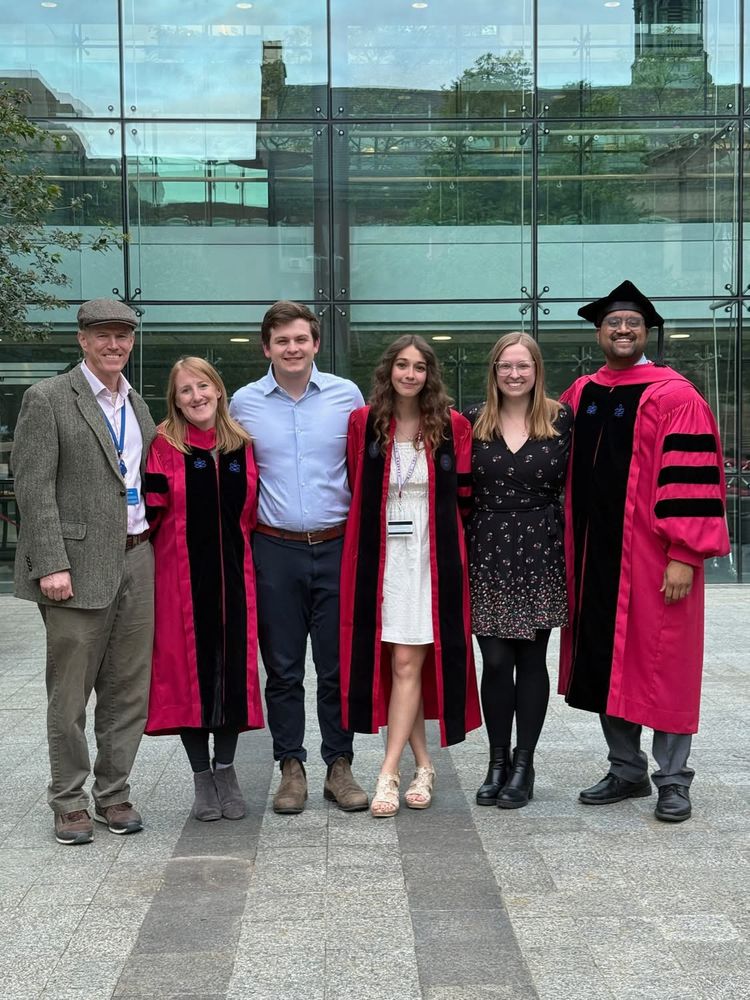
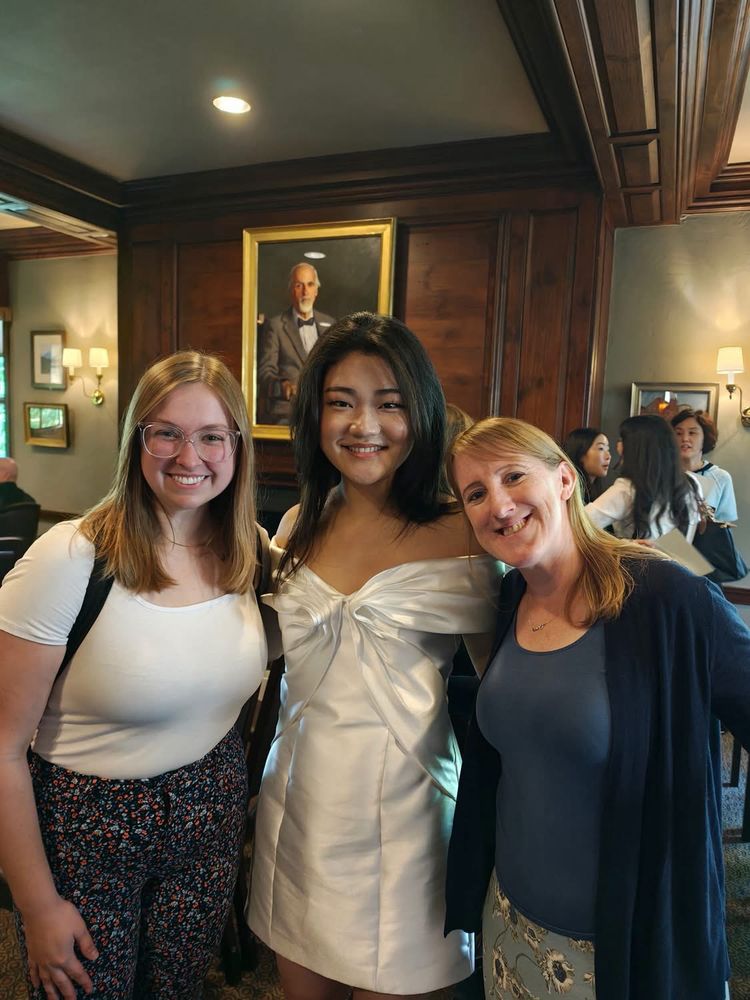
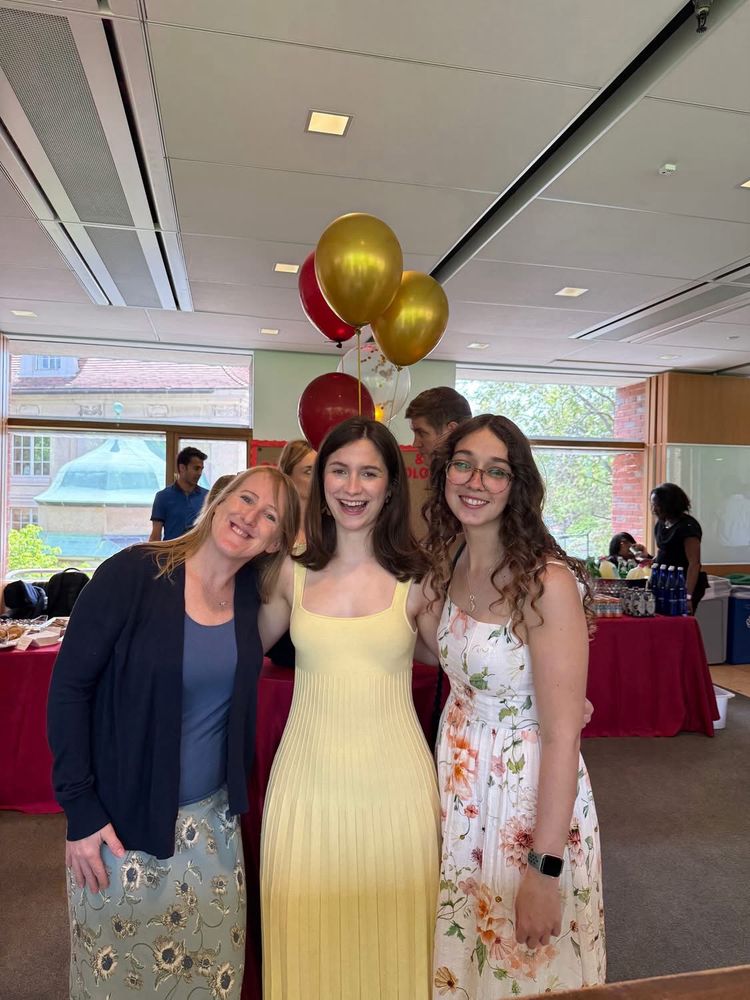
May 31, 2025 at 3:45 PM
🎓Congratulations to our incredible grads! 🎉
Dr. Lish and outstanding undergrads Seohyun Kim & Ellie Grogan are officially Harvard alumni! 🥂
We’re so proud of all you’ve accomplished—and can’t wait to see what you do next! 💫 @alexlish.bsky.social
Dr. Lish and outstanding undergrads Seohyun Kim & Ellie Grogan are officially Harvard alumni! 🥂
We’re so proud of all you’ve accomplished—and can’t wait to see what you do next! 💫 @alexlish.bsky.social
Reposted
Excited to see our recent study featured on Alzforum! Thank you for highlighting our new study on how AD risk variants at the CLU locus lower astrocytic clusterin, disrupt neuroimmune crosstalk, and drive synapse loss. Read the full story here!
Alzheimer’s Risk Variants Leave Astrocytes CLUless | ALZFORUM
nam04.safelinks.protection.outlook.com
May 15, 2025 at 9:45 AM
Excited to see our recent study featured on Alzforum! Thank you for highlighting our new study on how AD risk variants at the CLU locus lower astrocytic clusterin, disrupt neuroimmune crosstalk, and drive synapse loss. Read the full story here!
Reposted
New TYP lab paper out today in @cp-neuron.bsky.social led by PhD student @alexlish.bsky.social! We took a deep dive into the mechanisms underlying CLU in AD using innovative iPSC, mouse, and human data approaches. Be sure to give it a read!
www.cell.com/neuron/abstr...
www.cell.com/neuron/abstr...
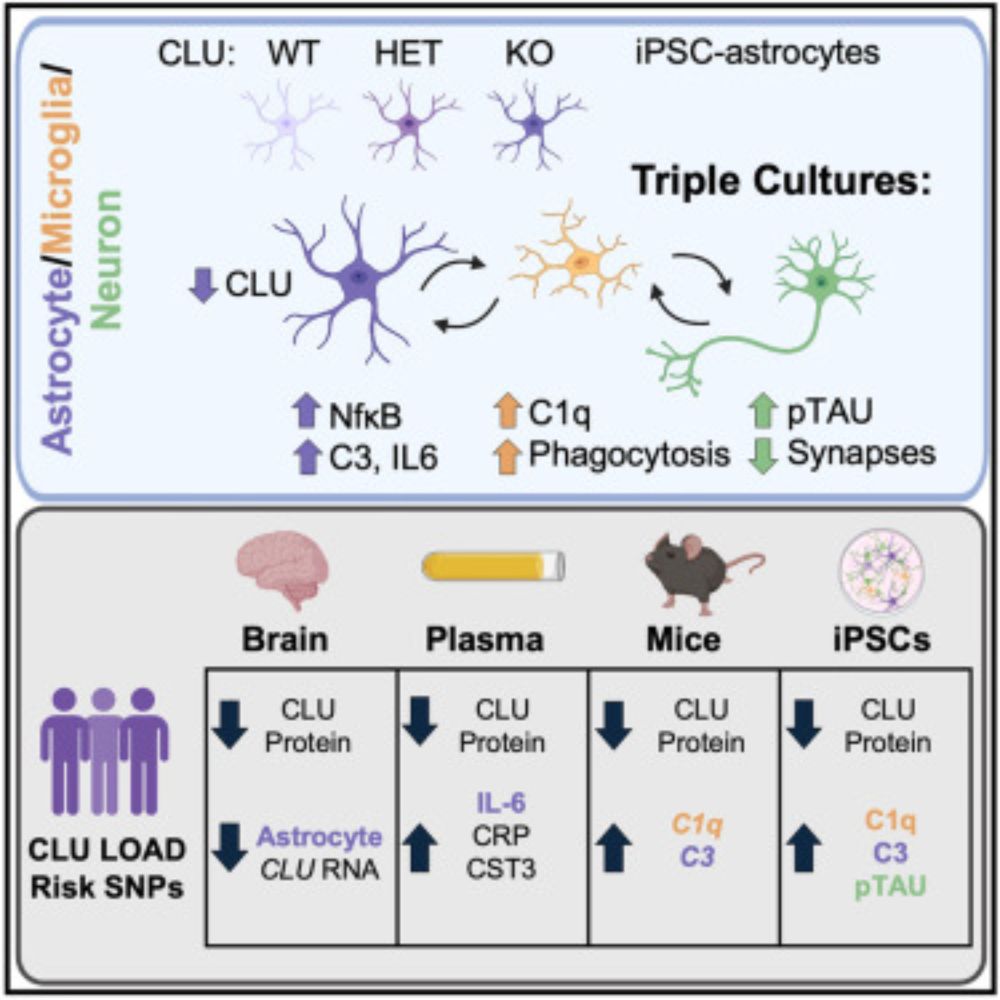
CLU alleviates Alzheimer’s disease-relevant processes by modulating astrocyte reactivity and microglia-dependent synaptic density
Lish et al. reveal that AD-protective CLU alleles enhance CLU upregulation in response
to accumulated neuropathology, thereby dampening inflammatory signaling between microglia
and astrocytes. Using s...
www.cell.com
April 30, 2025 at 3:56 PM
New TYP lab paper out today in @cp-neuron.bsky.social led by PhD student @alexlish.bsky.social! We took a deep dive into the mechanisms underlying CLU in AD using innovative iPSC, mouse, and human data approaches. Be sure to give it a read!
www.cell.com/neuron/abstr...
www.cell.com/neuron/abstr...
Thrilled to share my first first-author paper is out
@cp-neuron.bsky.social! We show that Alzheimer's disease protective CLU alleles upregulate CLU in response to neuropathology, dampening inflammatory signaling between microglia and astrocytes.
Read here www.sciencedirect.com/science/arti...
@cp-neuron.bsky.social! We show that Alzheimer's disease protective CLU alleles upregulate CLU in response to neuropathology, dampening inflammatory signaling between microglia and astrocytes.
Read here www.sciencedirect.com/science/arti...

CLU alleviates Alzheimer’s disease-relevant processes by modulating astrocyte reactivity and microglia-dependent synaptic density
Genetic studies implicate clusterin (CLU) in the pathogenesis of Alzheimer’s disease (AD), yet its precise molecular impact remains unclear. Through u…
www.sciencedirect.com
April 30, 2025 at 3:51 PM
Thrilled to share my first first-author paper is out
@cp-neuron.bsky.social! We show that Alzheimer's disease protective CLU alleles upregulate CLU in response to neuropathology, dampening inflammatory signaling between microglia and astrocytes.
Read here www.sciencedirect.com/science/arti...
@cp-neuron.bsky.social! We show that Alzheimer's disease protective CLU alleles upregulate CLU in response to neuropathology, dampening inflammatory signaling between microglia and astrocytes.
Read here www.sciencedirect.com/science/arti...
Reposted
Congratulations to the newly minted PhD @alexlish.bsky.social on successfully defending her thesis today! Be on the lookout for all the amazing things to come from Dr. Lish!
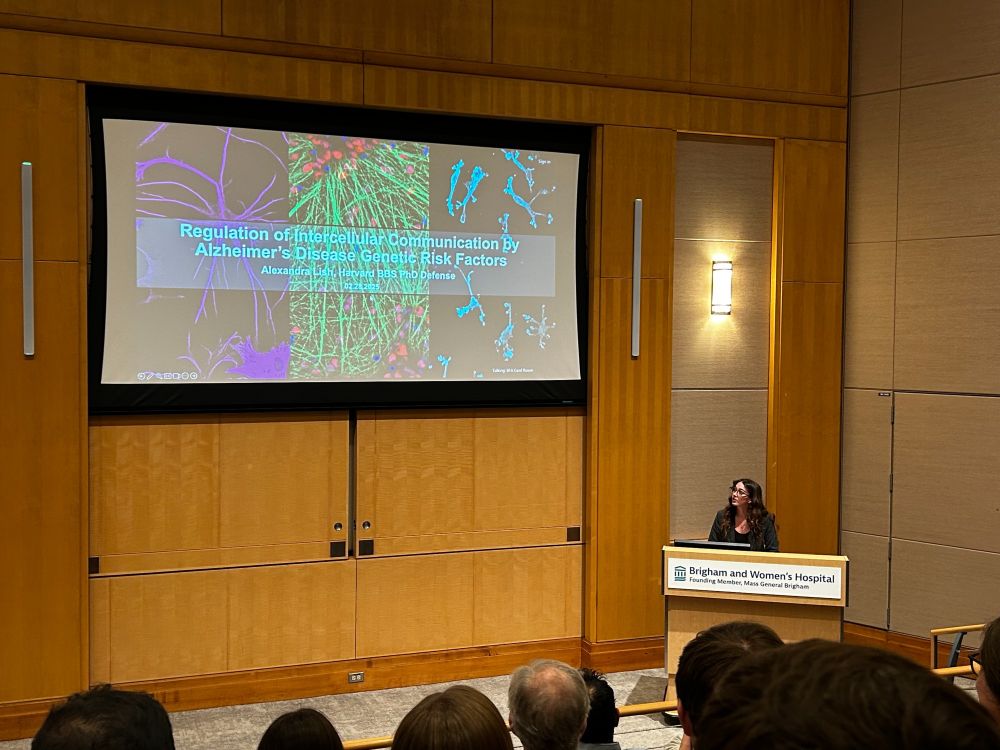
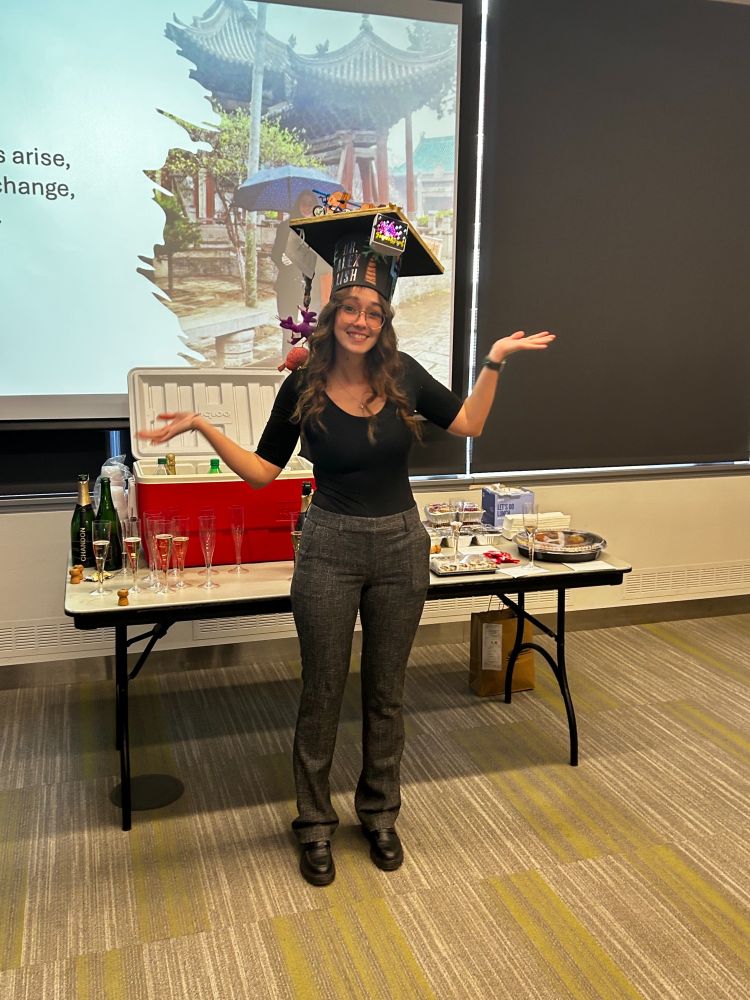
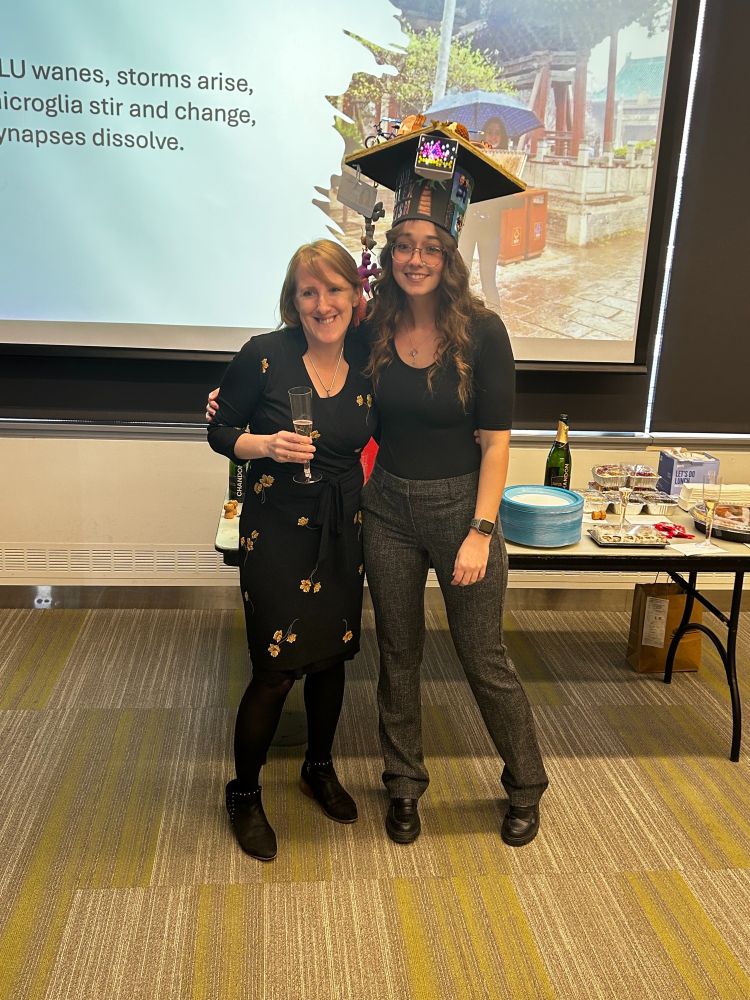
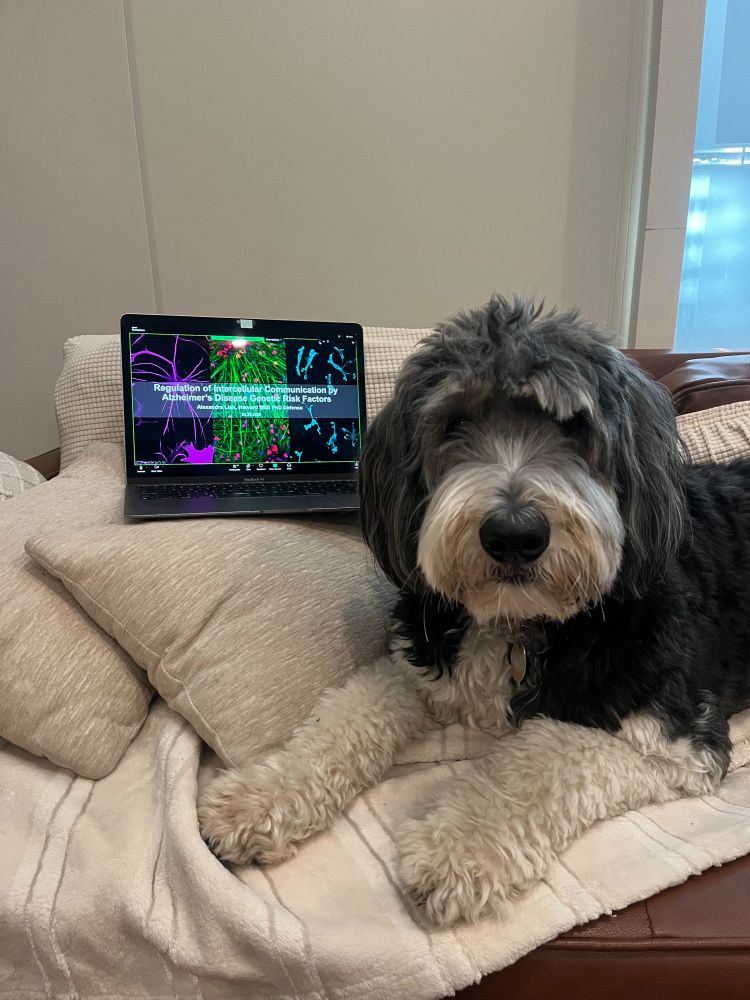
February 28, 2025 at 10:16 PM
Congratulations to the newly minted PhD @alexlish.bsky.social on successfully defending her thesis today! Be on the lookout for all the amazing things to come from Dr. Lish!
Reposted
New TYP lab publication out today in Glia, led by talented previous PhD student Hyo Lee! Our first big analysis of induced Astrocytes from 44 individuals in the ROSMAP cohort.
You can find it here: onlinelibrary.wiley.com/doi/10.1002/...
You can find it here: onlinelibrary.wiley.com/doi/10.1002/...
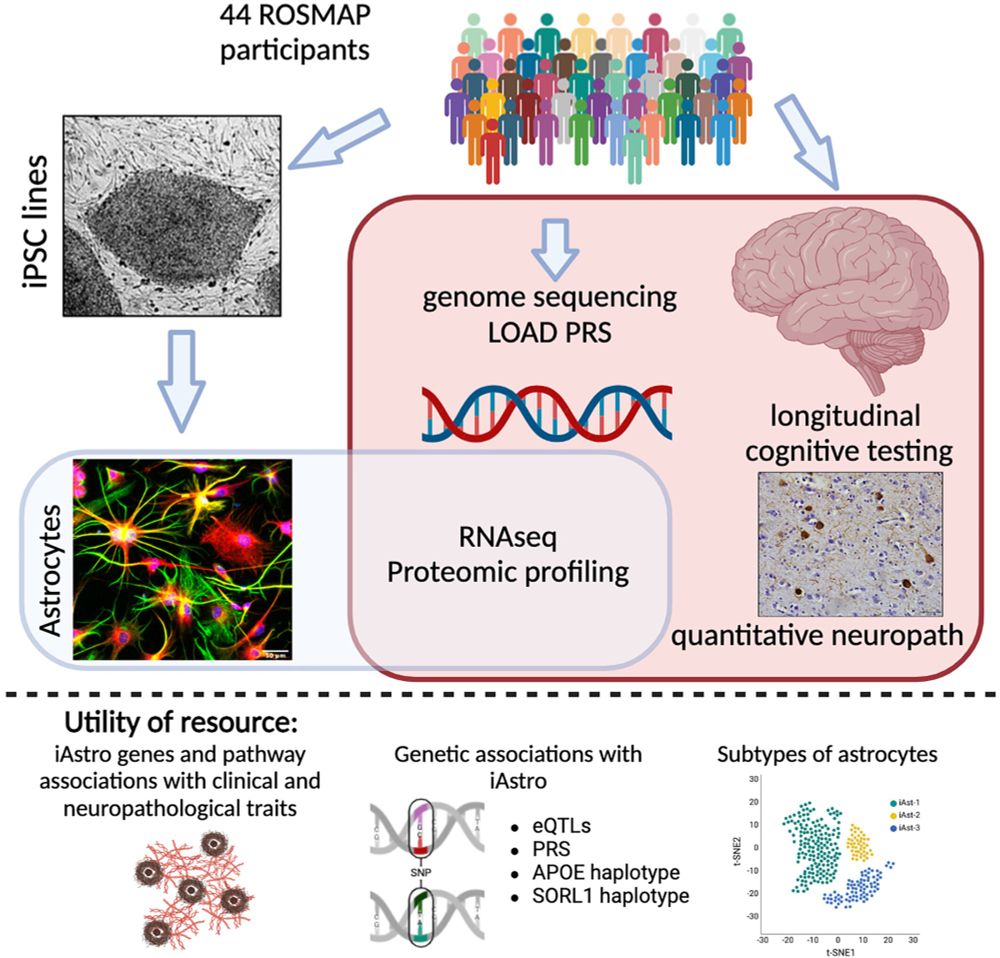
Contributions of Genetic Variation in Astrocytes to Cell and Molecular Mechanisms of Risk and Resilience to Late‐Onset Alzheimer's Disease
Generation and characterization of induced pluripotent stem cell (iPSC)-derived astrocytes from 44 aged humans reveals congruence of gene expression profiles between astrocyte cultures and brain and ...
onlinelibrary.wiley.com
February 4, 2025 at 2:27 PM
New TYP lab publication out today in Glia, led by talented previous PhD student Hyo Lee! Our first big analysis of induced Astrocytes from 44 individuals in the ROSMAP cohort.
You can find it here: onlinelibrary.wiley.com/doi/10.1002/...
You can find it here: onlinelibrary.wiley.com/doi/10.1002/...

